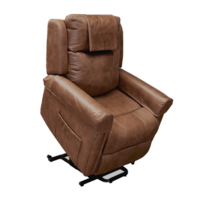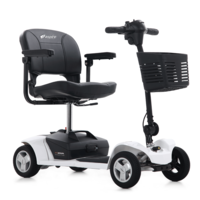Managing Mealtimes for People with Dementia
Eating a balanced diet and drinking plenty of water is essential for the health and wellbeing of people with dementia.
But people with dementia can often experience difficulties when it comes to mealtimes. They may find chewing and swallowing hard, may no longer enjoy certain foods, or can simply forget to eat regularly. This can lead to weight loss or dehydration, which sometimes necessitates increased medical attention.
As a carer for someone with dementia, you may have to change the way you approach meal preparation and mealtimes to make it easier and enjoyable for both you and your loved one.
Tackling common mealtime issues.jpg)
Changing preferences
It’s not uncommon for someone with dementia to change their food preferences – sometimes very suddenly. Certain tastes and textures can become overwhelming, or they might find it difficult to chew or swallow certain foods.
As someone who prepares meals or shops for someone with dementia, you should continuously check in with their preferences. If they find it difficult to describe what they like, pay attention to what food is always left on the plate or in the refrigerator to gauge their preferences.
By being open to changing the way you prepare or serve food, you can help your loved one maintain a healthy diet.
Remembering to eat and drink
People with dementia can have difficulty sticking to a regular routine. It’s not uncommon for someone with dementia who is living alone to simply forget to eat. Even if they feel hungry, they may not remember that there’s food in the fridge.
One strategy is to set a digital reminder at mealtimes. Pictures of food on the fridge can help the person with dementia associate it with mealtimes and encourage them to open the fridge to serve themself.
Snacks and non-perishable foods can be left out in clear containers or under a cloche to encourage grazing throughout the day. Water bottles can also be placed around the house to encourage regular hydration.
Coordination and cutlery.png)
Dementia can lead to difficulties using regular cutlery. Someone with dementia might not be able to hold cutlery properly, or find it hard to bring food to their mouth without it falling off. This can lead to frustration and can make mealtimes less enjoyable.
Adaptive cutlery is designed to help people who have trouble using standard cutlery. They are easier to hold and bring food to the mouth, and help people maintain independence at mealtimes.
Another option is to serve finger foods. Small sandwiches, mini quiches, rissoles and cut up fruit are easy to pick up and eat without cutlery.
Chewing and swallowing
As dementia progresses, it can lead to difficulties with chewing and swallowing. This might lead to an incident of choking (or fear or choking) that can make someone with dementia reluctant to eat certain foods.
To combat this, you can prepare foods so that they are softer and easier to chew. Steamed vegetables, white fish and soft fruits are all great options. Other options include soups and purees that are easy to swallow.
How to make mealtimes positive for people with dementia.jpg)
The best way to encourage someone with dementia to eat well is to make mealtimes as enjoyable as possible.
- Eat meals together. If you’re preparing food for someone with dementia, sit down and eat together. As well as making it a social activity, watching you eat can help them associate the action of chewing and swallowing.
- Combine lunch with a social outing. Head out to a local cafe with friends and family, or see if your local community centre or church group offers a lunchtime get together.
- Remove distractions. Loud music and a cluttered table can be overwhelming and make it harder to concentrate on eating. Remove anything you don’t need from the table
- Use contrasting crockery and cutlery. People with dementia may have perceptual changes that make it difficult to differentiate foreground from background. Using a contrasting plate to the tabletop helps draw attention to the plate. Red has been shown to be a good colour as we are hard-wired to pay attention to it. Plates with red edging may help to bring attention to the food in the centre.
- Take it slow. Allow for as much time as possible for mealtimes to avoid having to rush through it. Start by placing a small amount of food on the plate, then warming up seconds if needed. Keep your energy level calm and encouraging as possible.
- Consider grazing plates rather than full meals. Some people with dementia don’t enjoy sitting down to eat a full meal. Instead, prepare smaller grazing plates and place them at arm’s reach throughout the day.
If you have concerns about nutrition, weight change, chewing or anything else associated with mealtimes and dementia, reach out to their doctor or find more resources at Dementia Australia.
Read our guide Dementia: A Guide for Carers Looking After a Loved One for more on caring for someone with dementia.
































